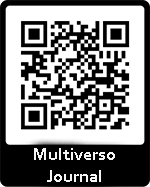El feminismo como condición de género para una bioética global
DOI:
https://doi.org/10.46502/issn.2792-3681/2023.4.5Palabras clave:
bioética, bioética global, feminismo, pensamiento complejo, neo-ateísmo.Resumen
Teniendo como objetivo corresponder el movimiento político y social del feminismo con la disciplina bioética, se efectuó una revisión sistemática de literatura producida y generada en los idiomas español, inglés y portugués en el periodo de 1970 a 2021. Con exploración en motores de búsqueda y bases de datos virtuales, donde se aplicó un método cualitativo, con enfoque descriptivo, con diseño de un instrumento de matriz de revisión para aplicar un método correlacional, a partir del cual se determinaron dos categorías emergentes que fueron: el pensamiento complejo y el neo-ateísmo. Producto de la revisión se concluyó que el feminismo es un movimiento de masas de distinta naturaleza, que germinó de la corriente defensora de la voluntad y autodeterminación de la mujer, cuya teoría se ha adaptado a los cambios situación que ha permitido acoger posturas más equitativas, para romper esquemas del patriarcado donde tiene cambiada la bioética global apoyada en las teorías del pensamiento complejo y, por su parte, el neo-ateísmo, para vigorizar su naturaleza critico-revisionista y encuadrada para producir cambios, se registraran en lo real cotidiano.
Citas
Alvaro, C., & Osorio, S. (2014). La Bioética a la Luz de las epistemologías de segundo orden. El aporte crítico de Edgar Morin, Marià Corbí y Carlos Castañeda. Bogotá D.C.: Universidad Militar Nueva Granada.
Boscan, A. (2015). La Bioética Feminista y la Construcción actual del género. Revista Opción, 31(5), 162-188.
Castañeda, M. (2007). El machismo invisible regresa. Taurus. Penguin Random House Grupo.
De la Torre, J. (2010). Mujer, Mujeres y Bioética. Universidad Pontificia Comillas.
El Diario ABC de España. (2009). España. Sucesos. https://www.abc.es.
Feito, L. (2010). Aspectos Filosóficos de la Relación entre las mujeres y la bioética. En J. Torres. Mujer, Mujeres y Bioética (pp. 19-58). Universidad Pontificia Comillas .
Fonseca, E., & Alvaro, D. (2015). El método Podemos: marketing marxista para partidos no marxistas. Lineas libres .
Fundación Macarthur. (2001). Ideas feministas sobre bioética. Revista Estudios Feministas, 483-51.
León-Correa, F. J. (2008). Ética del cuidado feminista y bioética personalista. Persona y Bioética, 12(1), 53-61.
Mires, F. (1999). La revolución femenina. En F. Mires. La revolución que nadie soño o la otra posmodernidad (pp. 53.89). Nueva Sociedad.
Oliveira, F. (1995). Feminismo, lucha antirracista y bioética. Cuadernos Pagu, (5), 73-107.
Palazzani, L. (2008). La contribución de la bioética en femenino a la praxis del cuidado. Azafea Revista de Filosofia,10, 145.157.
Pessini, L. (2017). Bioética, humanismo e pós-humanismo no século XXI. Em busca de um novo ser humano? Revista eclesiástica brasileira, 77(306), 301-347.
Sanchez, G. M. (2012). Lo nuevo en el mundo: La perspectiva de Hannah Arendt. Revistas Anales, (3), 189-196.
Tilly, CH., & Wood, L. (2012). Movimientos Sociales. Londres. Inglaterra: Edit. Taylor & Francis.
Descargas
Publicado
Cómo citar
Número
Sección
Licencia
Derechos de autor 2023 Camilo Andrés Vargas-Machado, Claudia Faviola Vargas Sepúlveda

Esta obra está bajo una licencia internacional Creative Commons Atribución 4.0.
Los autores que publican en esta revista están de acuerdo con los siguientes términos:
Los autores conservan los derechos de autor y garantizan a la revista el derecho de ser la primera publicación donde se presenta el artículo, el cual se publica bajo una Creative Commons Attribution License, que permite a otros compartir el trabajo previo el reconocimiento de la autoría del trabajo y de la publicación inicial en esta revista.
Los autores pueden establecer por separado acuerdos adicionales para la distribución no exclusiva de la versión de la obra publicada en la revista (por ejemplo, situarlo en un repositorio institucional o publicarlo en un libro), con un reconocimiento de su publicación inicial en esta revista.



















